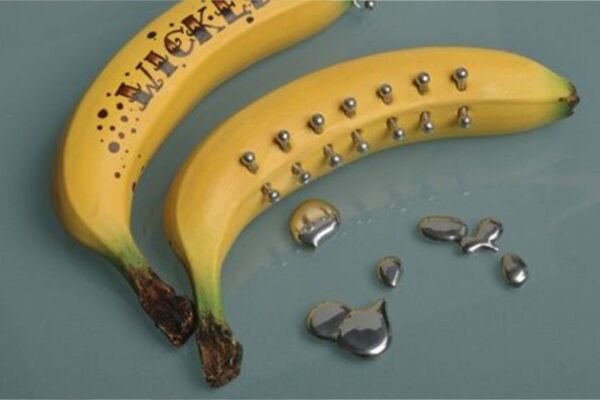When we hear of child abuse, we cross our hearts and say God forbid it. “Who would hurt a child?” We’ll ask. “Children are gifts from God,” we’ll say. But if you look closely, you will realise that we’ve all been involved in child abuse either as adults or children.
In Nigeria, parents strongly abhor sparing the rod and spoiling the child. Every Nigerian has received ‘brain-resetting’ flogging from their parents at some point in their childhood. While the intention may be noble, it is still regarded as child abuse by western civilization. As the argument on whether western views of physically disciplining children is still ongoing, let’s discuss the meaning of child abuse, its types, signs, and prevention.
What is child abuse?
A definition by Mayo Clinic, says that child abuse is any intentional harm or mistreatment of a child under 18 years old. Child abuse is not just physical; it can take different forms, which will be discussed later. Children are usually abused by adults on which they are dependent. These adults could be their parents, relatives, guardians, teachers, nursery workers, coaches, etc.
Types of child abuse
The following are five general types of child abuse:
Physical abuse
Physical abuse is when physical violence is meted out on a child that could cause injury or trauma. Many Nigerian parents are guilty of physically abusing their children in the name of disciplining them. Cases abound where parents severely injure their children with cane marks, hot water, or pepper. Such practices are terrible and detrimental to children who undergo such abuse.
Sexual abuse
This occurs when an adult takes sexual advantage of a child. Sexual abuse takes several forms, such as intentional sexual touching, oral-genital contact, or intercourse. Other forms are intentionally exposing a child to sexual activity or pornography, observing or filming a child sexually, sexual harassment of a child, or prostitution of a child, including sex trafficking.
Emotional/psychological abuse
Emotional and psychological abuse occurs when an adult causes a child to have low self-esteem and mental health issues. For instance, constantly calling a child a goat who will never amount to anything great in life is emotional abuse. A child who grows up with that abuse will have life-long self-esteem and mental health issues if they don’t seek help. Again, many Nigerian parents are guilty of this and should stop.
Medical abuse
Medical abuse refers to when an adult causes a child to abuse the use of drugs. For instance, a parent can give false information about an illness in a child that requires medical attention. This will lead to a wrong diagnosis that results in abusing drugs. It puts a child’s life at risk.
ALSO READ: Sex education: Types, importance, when to start for your children
Neglect
We’ve heard stories of parents or guardians abandoning their wards to go partying elsewhere. Also, failure to protect and provide adequate food, clothing, shelter, clean living conditions, affection, supervision, education, or dental or medical care is an abuse of a child.
Signs of child abuse
Signs and symptoms depend on the type of abuse and can vary. It is also important that these warning signs don’t necessarily mean a child is being abused. But for safety’s sake, try and understand why your child is exhibiting those signs before making any conclusions.
Signs of physical abuse
- Bruises, welts, burns, and other injuries that cannot be explained or don’t match the child’s story.
- Injuries that leave marked patterns like a hand, belt, and other objects.
- Injuries at different stages of healing in different places.
- The child is afraid of physical contact.
- He or she is afraid to go home.
- Wears clothes that cover up injuries.
- Doesn’t mingle with other children and is withdrawn from activities.
Signs of sexual abuse
- Avoiding a particular adult for some unknown reason.
- Bloody, torn, or stained underwear.
- Bruising and bleeding around the genitals.
- Difficulty walking due to pain around the genitals.
- Itching around the genitals.
- STD and unwanted pregnancy, especially for children under 14 years old.
- Refusing to change clothes around others.
- Shocking sexual knowledge and acts that only an adult should know.
- Tendency to run away from home.
Signs of emotional abuse
- Low self-esteem.
- Obsessed with being of good behaviour to get people to like him or her.
- Depression.
- Poor performance in school.
- Extreme behaviour – either being too difficult or too obedient.
- Delay in speech and emotional development.
- Doesn’t like being around a parent or specific adult.
- Showing little interest in making friends or involving in activities.
- Always having headaches or stomach aches with no apparent cause.
ALSO READ: Cultism: History, causes, major groups in Nigerian varsities
Signs of neglect
- Looking unkempt.
- Constantly being left alone to fend for him or herself.
- Starvation
- Overeating and saving some for later.
- Poor weight gain or growth.
- No medical, dental, or mental health care.
- Missing school a lot.
- Poor performance in school
Signs of medical abuse
- No medical, dental, or mental health care and no follow-up.
- Drug abuse.
How to prevent child abuse
Here are eight ways to prevent child abuse:
Invest family time with your kids
This means leaving everything else to focus on nurturing your child or children. Enjoy family time with them by playing, helping with homework, listening to their problems and stories, and playing with them. This way, your kids can easily open up to you when something weird is happening to them.
Educate your child
Teach your child what abuse is so that he or she can identify it when it comes their way. Teach them their right to the basic things of life, such as food, clothing, and shelter.
ALSO READ: Solar Energy: Advantages, disadvantages, other things to know
Watch out for your behaviour
A bad day can tempt you to take out your frustration on your child. Watch out. Children can be a handful, but it doesn’t mean they should be severely punished for their behaviour. When you feel angry and frustrated, take a deep breath, drink a glass of water and get out of the immediate environment for a while.
Discipline your children with love
In other words, you should punish your erring child or children thoughtfully. Don’t descend your anger on them. They are too young to take it.
Watch out for signs of abuse
You never know what your child is going through if you don’t watch out for them. You can’t be with your kids 24 hours a day. This is why you should be highly alert when they exhibit certain behaviours.
Report cases of child abuse
They say a closed mouth is a closed destiny. Don’t keep silent when a child is being abused around you. Speak out and report the case to relevant authorities.
Monitor your child’s television, video, and internet viewing/usage
Parental control should be activated on your TV to prevent programs unsuitable for your child’s viewing. Also, monitor your child’s phone or computer devices for inappropriate content.
Volunteer your time in community programs
Get involved in your community to raise awareness about child abuse. Child abuse prevention should be everybody’s business. Don’t say it’s not your business, and watch a child being damaged because you refused to get involved.
ALSO READ: History of jungle justice in Nigeria, causes, cases, what the law says








